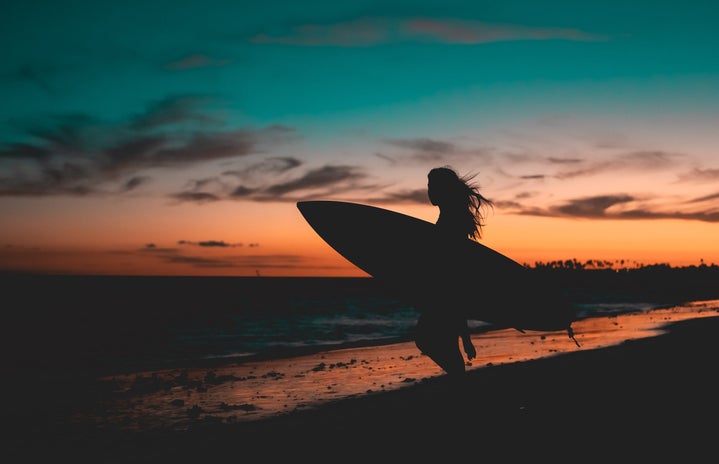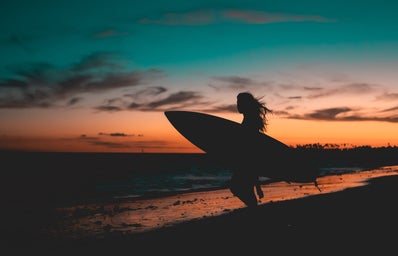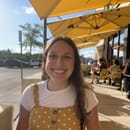On Feb. 23, 2023, Netflix released the highly anticipated third season of “Outer Banks.” All three seasons made Netflix’s global Top 10 Weekly List and the show has announced season four is on its way. The show follows a group of teens in North Carolina, and it revolves around a treasure hunt to find gold from a shipwreck. The main characters in the show include John B, JJ, Pope and Kiara. Later in the first season, they also become friends with Sarah Cameron, since she starts dating John B. It has the components of most teen dramas with adventures and relationships. It has been labeled an “escapist” television series. Does that mean that it does not discuss real-world issues? No, it discusses both race relations and the wealth disparity in America.
*Warning: There are Spoilers Ahead*
Race Relations in America
Although not really present in season one, season two allows for more discussion on race. In season two, the viewers learn the story of Denmark Tanny. He was the sole survivor of the Royal Merchant shipwreck. Originally, people thought there were no survivors because slaves were not written as passengers in most manuscripts. Denmark Tanny used the gold from the ship to buy his and many other slaves’ freedom. He tried to buy his wife’s freedom, and the owners would not let him. His wife tried to escape, and she was killed. He tried to give his wife a proper burial, and they killed him.
In season two, Pope finds out he is related to Denmark Tanny and is passionate about people knowing this story. His grandmother did not tell her son or grandson because she did not want them to be angry. Along with the gold, Denmark Tanny took the Cross of Santo Domingo, a gift from Spain, off the Royal Merchant. The cross is seven feet tall and plated in gold with jewels. This is the object of the search in season two.
After it is learned that Denmark Tanny left a note that said his treasure is buried at the foot of the angel, a group of rich people from the island start digging by the angel tree and they hit something. They pull it up because they think it is the cross in a box, but it is the casket of Denmark’s wife.
Pope running up to see they had defiled her grave was an impactful moment that was especially emotional for the actor. The actor that plays Pope, Jonathan Daviss, is vocal about his involvement in the Black Lives Matter Movement and says he pulled emotions from that when playing Pope. Pope is passionate about finding the cross because it is part of his family history. Pope and his friends find the cross at the abandoned Freedmen’s Assembly of God Church, but they have to leave it because he has an allergic reaction to a bee sting. One of the rich men from the island, Rafe, followed them there and stole it when they left.
In the next season, Rafe’s father wants to do the right thing to atone for the wrong things they have done by donating the cross to a museum. Instead, Rafe melts the cross down and sells it for parts. This shows he valued money over the history and culture of the cross. When Pope finds out about this, his friends have to talk him down because he is extremely angry.
Denmark Tanny is not a real person, but his story is inspired by Denmark Vesey, an activist and community leader who lived in Charleston, South Carolina, in the 1800s. Denmark Vesey won a street lottery and was able to buy his freedom. However, the slave owner would not let him buy the freedom of his family as well. He is known for planning a revolt, but before it happened, plantation owners discovered his plan, and he was killed. He was seen as a hero for nineteenth-century abolitionists and twentieth-century civil rights leaders. He is honored with a statue in Hampton Park in South Carolina.
Wealth Disparity in America
The working class side of the island is called the Cut, and the people who live there are called Pogues. The richer side is called Figure Eight, and the people who live there are called Kooks. As John B describes it, “Kooks are people who have two houses, and Pogues are people who have two jobs.” During the first episode, there is a hurricane that causes the power to go out. Only a day or two after the hurricane, the Kooks have their generators running, and as Pope and JJ are delivering groceries they say, “It doesn’t even look like the storm hit here, yet the power at the Cut will be out all summer.” The show explicitly compares it to America when John B quotes his father saying, “The island is like America on steroids, with the haves and have-nots.” In 2022, 70% of the total wealth of the United States was owned by the top 10% of earners, and the lowest 50% of earners owned 2.5% of the total wealth.
Later in the season, there is a party at an island club called Midsummers, and Kiara points out to her mom how “people, not three miles from here don’t have running water, and we’re going to a party.” Along with this, Kiara has many lines of dialogue about sustainability. She is passionate about not using plastic and saving the turtles. When talking to Pope she says, “My pet peeve is when people give 1% to the environment. We should be giving 100% bare minimum, we only get one Earth.” In season three, Kiara wears a shirt that says “Sustainability is Hot.” Although this is a small part of the show, the show’s creators seem to be intentional about the message they send to viewers.
The greed of the Kooks can be seen throughout all three seasons with the Pogues truly needing the money from the gold they found, and a Kook family who stole it from them. There is also a connection between wealth and trust. A wealthy man accuses John B, a 16 year old with no parents, of a murder his son committed. John B did not do it, but he does not know how to prove his innocence, and he knows the cops are not going to believe him, so he decides to leave on a boat during a storm at the end of season one.
Since the fan base is mainly teenagers, shows like this often get overlooked. No show should be automatically dismissed because teenagers like it. Art can help teenagers navigate their emotions and life experiences. Whatever reason you watch “Outer Banks” for, like the heartwarming friendships or distraction it provides, it deserves recognition for some of its deeper themes.


